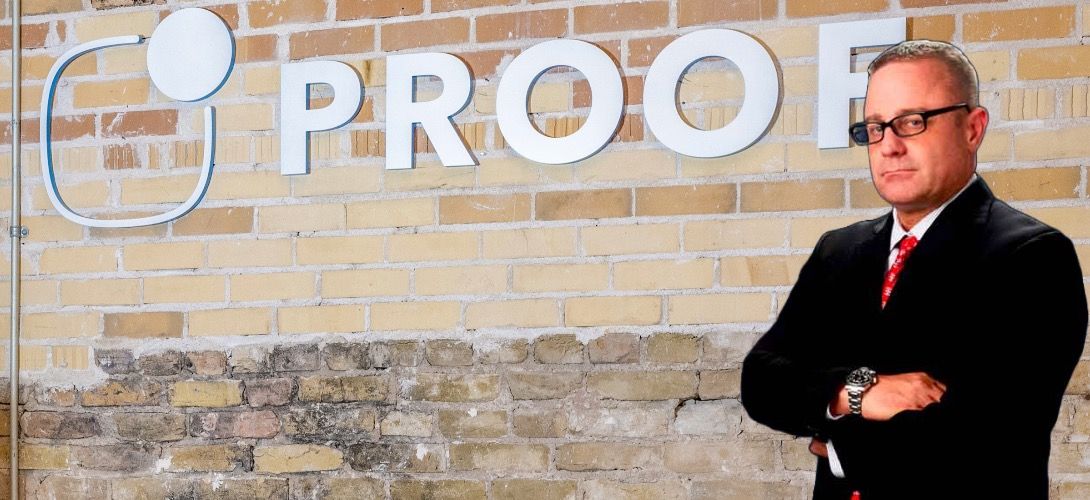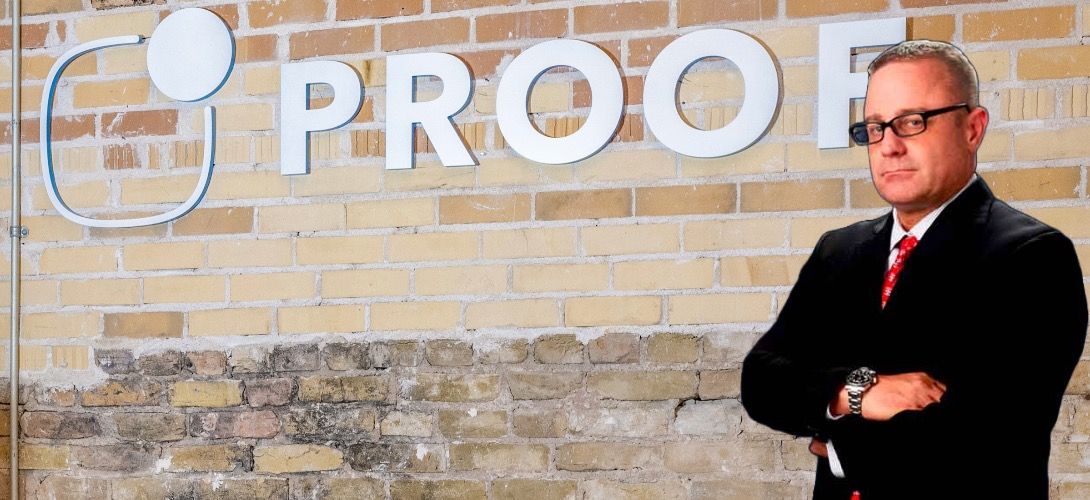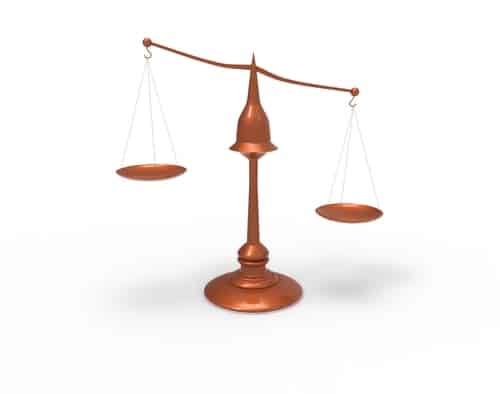
Personal Injury and Civil Court Standard of Proof

Personal Injury and Civil Court Standard of Proof
As will be discussed, there is a different burden of proof in criminal Court to obtain a conviction than in civil Court to get a judgment or jury award. Moreover, proving the plaintiff’s burden means arguing the relevant “standard of proof.” Civil Court has a lessened responsibility than in a more severe criminal case.
However, the plaintiff’s burden in a civil tort case is to prove each element of the case, the defendant’s duty, including breach of obligations owed to the plaintiff by the defendant, causation, and damages based upon a preponderance of the evidence. In civil cases, money or some injunctive relief is usually the outcome.
Sometimes in civil fraud or punitive damages cases, part of a bifurcated damages case, clear and convincing evidence must be shown to win. Since even clear and convincing evidence is a lower burden than the “beyond a reasonable doubt standard” in a criminal case, civil cases are generally considered more accessible issues to prove. The trade-off is that there is no jail for losing a civil lawsuit on the defendant’s part.
In a criminal case, the outcome of a guilty verdict for a sexual assault or robbery, for example, can be charged as a felony, misdemeanor, or even be reduced to an infraction. A criminal conviction or a plea bargain can result in severe penalties, including the death penalty, long or concurrent sentences in prison, fines, penalties, house arrest, parole, probation, roadside clean-up, and so forth.
Criminal Court = Beyond A Reasonable Doubt Standard
To recap, penalties include loss of life, liberty, and the pursuit of happiness for an upheld conviction. This criminal standard requires proof of guilt beyond a reasonable doubt. It must convince a judge or jury of the defendant’s guilt. Only then can they determine the sentence and penalty.
Civil Court = Generally Will Be The Preponderance of the Evidence Standard.
But the standard of proof in a civil case is usually the “preponderance of the evidence” standard. But cases involving fraud or intent may require a clear and convincing evidence standard. Often, the original or amended complaint alleges fraud. So those causes of action would need a higher standard of proof for you to win. (More about the preponderance of evidence here.)
What Are the Wrongful Acts?
Wrongful acts or certain types of negligence can be the basis for criminal actions that result in financial punishment. Beyond fines and penalties, this same behavior can also result in imprisonment when the state or federal prosecutor initiates the criminal prosecution, a jury decides upon conviction, or the defendant facing incarceration enters a plea arrangement.
Although there may be criminal charges against a tortfeasor, the wrongful actions in a civil case fall under civil tort law, even though they can also involve a private attorney general statute. This law means an individual harmed through negligence, such as a fender-bender traffic accident, can sue.
The same goes for intentional acts, such as when someone punches you in the face without a license. Or it could have been on purpose. And if so, you (as a tort victim) have the legal right to file a civil lawsuit. You would do so to recover damages. “Civil liability” under tort law defines these cases.
Criminal Case Compared to a Civil Case – Meeting Burdens of Proof
Evidence in all criminal cases should be clear and concise to be convincing in court cases, though with civil cases, the evidence often falls between this and “more likely than not.” This standard exists because the civil Court relies on a lower burden of proof. But to convict criminally, the evidence must be much more significant and not just tip the scales.
In these jurisdictions, the plaintiff, the People of the State of California, must prove crimes took place. This rule exists because, in most criminal cases, jail time and even the death penalty can be a punishment if convicted. In any event, the U.S. Supreme Court says a lessened burden of evidence is required in most civil lawsuits.
And this is called the “preponderance of the evidence” standard of proof. This lowered evidentiary threshold exists mainly because the only punishment will be monetary damages. The one time that more is required is when “vital individual interests are at stake.” This standard is known as the “clear and convincing” burden of evidence. Typically this is used in fraud cases and to prove punitive damages, for example.
Recent Court Examples of Clear and Convincing Evidence Standard Issues?
This higher civil standard has been primarily on cases that involve punitive damages, insurance, bad faith, or fraud. But with every rule, there is always an exception. One example was in 2003. That was when the Arizona Court of Appeals upheld a lower standard of proof.
And that was because an insurance company claiming fraud by an insured party had sufficient cause to void the policyholder’s policy. So that relieved the insurance company from being obligated to pay without the need for clear and convincing evidence to prove the carrier’s case.
More recently, an appeal case ruling in California involved a physician being sued by an insurance company under the statute for fraud due to over-billing. That Court ruled that the plaintiff could use a lower standard of evidence to prove their case.
The physician’s counsel had argued the case should be prosecuted using clear and convincing evidence (discussed below). But the doctor’s counsel also argued that the Court could apply the more significant criminal burden since the stakes remained high.
- Other Issue – What if a Matter is Potentially a Crime And a Civil Case?
Tort law can also sue when a wrongful act occurs in which criminal charges can be brought against the one who caused harm to another person. In such a case, you can get a civil claim against the wrongdoer in civil Court, irrespective of double jeopardy laws. This rule exists because one example is a civil case, and the other is potentially a chargeable offense in criminal Court. So, in that case, there is no double criminal punishment for the same crime.
“I’ll Take the 5th?” – Pending Criminal Case?
The Fifth Amendment restates the ancient Common Law right that:
“No person. . . shall be compelled in any criminal case to be a witness against himself.”
Our one Supreme Court has long upheld this natural right, stating:
“The privilege afforded not only extends to answers that would support a conviction under a federal criminal statute but likewise embraces those which would furnish a link in the chain of evidence needed to prosecute the claimant for a federal crime.” (Hoffman v. the United States, (1951) 341 U.S. 479, 486-487.)
With few exceptions, this rule is holy in a criminal case. Once relied upon, the defendant’s refusal to testify cannot be used against them to infer guilt or innocence.
Pleading the 5th in a Civil Case Distinguished – Inference of Liability Potentially Inferred.
Often when criminal charges are pending or potentially chargeable, defendants in civil cases will use the 5th Amendment as a basis for refusing to answer questions in the pending civil lawsuit. In this case, a seasoned plaintiff’s lawyer will argue Evidence Code Section 412. This argument attempts to have the other evidence the defendant produces in mitigation viewed with distrust.
It is also potentially a sanctionable act in a civil case to take the 5th to refuse to answer questions while under oath in that civil case. Even fishing expeditions are allowed. Facts discovered now could lead to other new witnesses and facts. And that new info is potentially admissible in a civil action. Often that would typically become disallowed in a criminal case for various reasons.
Potential “Doomsday Sanctions” for Taking the 5th in a Civil Case? – YES!
There are vast arrays of sanctions in a civil case available to a plaintiff to force the compulsion of responses. The party’s penalties can include having their answer stricken and entry of judgment in favor of the plaintiff without even going to trial.
There are many potential sanctions for refusing to answer civil discovery questions based upon “absolute privilege” like this. These penalties include monetary sanctions and even more extreme “doomsday sanctions” like “issue sanctions,” “evidence sanctions,” and “terminating sanctions.” (See also generally CCP §2023.030.) The wrongful action case by the victim in the civil Court will be to recover financial damages. But the local DA or City Attorney handles criminal charges against the wrongdoer. The criminal Court hears the charges. Criminal charges do not relieve you of civil liability. Also, both cases can use the same facts to garner evidence of wrongful action.
Both courts using that same evidence can have different results. For example, an acquittal in the criminal Court and a finding of liability in a civil court could have differing outcomes. Such was the case in the O.J. Simpson matter. He killed his wife and Ron Goldman. But O.J. played the race card and got out of jail time. In any event, he still was held liable for monetary damages in the wrongful death lawsuit. So, in that case, the surviving family members of decedent Goldman got a money judgment.
Differing Burdens of Proof?
This seemingly strange result is due to the difference in the burden of proof. This burden is less in civil litigation than in criminal prosecution. The civil court found the sports figure liable in money for damages to the deaths. So this shows the difference in proving a case in civil Court compared to a criminal trial setting.
- In that case, Judge Ito excluded evidence of guilt and allowed other evidence. But many legal scholars said Ito violated the law. But this occurred when Ito allowed in some hypothetical proof of innocence and excluded valuable evidence as to guilt. (such as the shrunken leather glove atop a rubber surgical glove).
Conflicts are more likely to occur in criminal court settings than in civil actions with the same events. This disparity is why some cases that result in an acquittal are still thriving in civil court. Ad this is all due to the difference in the standard of proof. Many variables remain involved here.
The Unintended Consequences of Jurors Weighing the Evidence
Many political scientists believe the O.J. case became a racial trial of whites versus blacks. There was an almost all-black jury panel. Most agree that the O.J. criminal trial set back race relations in this country. In the end, evidentiary burdens, political and other factors can play a significant role in how a jury rules on the standards of evidence.
Conclusion
As you can see, a civil case and a criminal have differing burdens. Personal injury attorneys must prove the plaintiff’s case with the evidence standard’s preponderance to meet the plaintiff’s burden of proving negligence. When a plaintiff wants to win, seeking an excellent personal lawyer’s advice to receive maximum compensation will go a long way to winning their case.
Categories
- A to Z Personal Injury Podcast
- Car Accident
- Government Tort Blog
- Insurance Law Blog
- Piloting and Aviation Accident Blog
- Premises Liability Blog
- Products Defect Blog
- Recreation-Sports Accident Blog
- Reports
- Service Related Cancer Blog
- Sexual Assault Blog
- Spinal Cord Injury Blog
- Torts, Examples, Explanations
- Train Accidents Blog
- TV, Media & Firm News
- Uncategorized
Firm Archive
Main Los Angeles Location

Michael Ehline
Michael Ehline is an inactive U.S. Marine and world-famous legal historian. Michael helped draft the Cruise Ship Safety Act and has won some of U.S. history’s largest motorcycle accident settlements. Together with his legal team, Michael and the Ehline Law Firm collect damages on behalf of clients. We pride ourselves on being available to answer your most pressing and difficult questions 24/7. We are proud sponsors of the Paul Ehline Memorial Motorcycle Ride and a Service Disabled Veteran Operated Business. (SDVOB.) We are ready to fight.
Go here for More Verdicts and Settlements.

